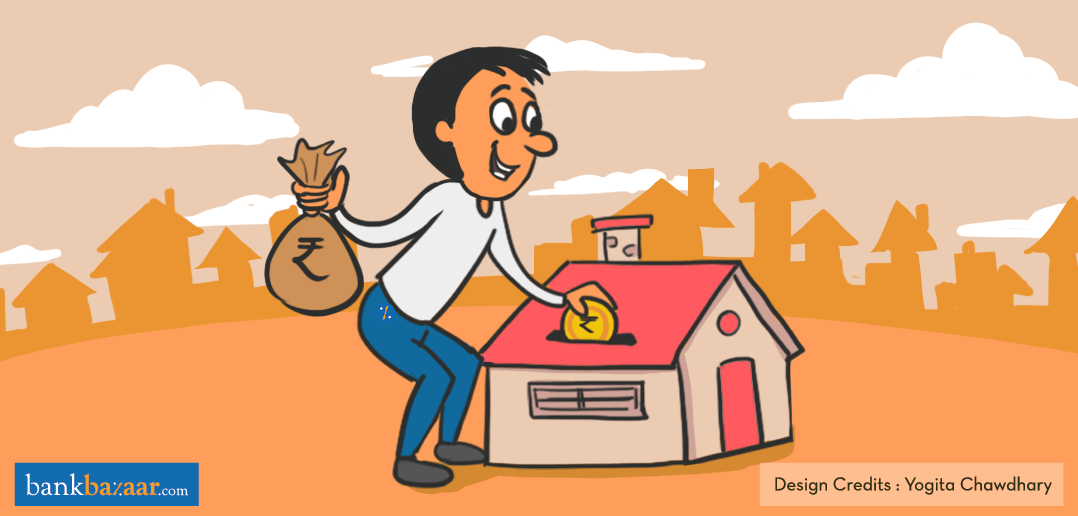If buying a new pad for yourself is on the cards, here are some things to consider before you sign on the dotted line.

Who doesn’t want to own a house of their own? No matter how comfortable your rented accommodation is, the level of contentment that comes with living under your own roof is pretty unbeatable. Owning a house certainly isn’t a distant dream if you have a stable and steady income but it’s not enough. Here are some crucial points you need to consider before you decide to opt for a Home Loan:
What Does Research Say?
According to a study conducted by ICRA, the average Home Loan amount that housing finance companies grant ranges between Rs. 25 lakhs-Rs. 30 lakhs. This puts the average EMI amount roughly between Rs. 25,000-Rs. 30,000 per month, if we consider the thumb rule that your loan EMI is about 1% of your total loan amount. Regardless of your household income, an EMI of Rs. 30,000 is a substantial amount and is likely to put a strain on your household finances. Taking a Home Loan involves a financial burden that you’re likely to carry for the next 15-20 years (depending on the tenure of your Home Loan). Here’s a checklist of points that you should go through before you make up your mind about opting for a Home Loan:
-
Do you have the down-payment ready?
Even if you take out a Home Loan to finance your dream home, you will still need to cover 10-20% of the home’s cost (including registration) yourself. If you and your partner are planning to sign up for the Home Loan as co-borrowers, check if you both can pool in money and will be able to cover the down-payment on your Home Loan.
Additional Reading: Terms For Adding Co-applicants To A Home Loan Application
-
Is your income enough to be eligible for a sufficient Home Loan amount?
Most lenders, at the time of reviewing your application, will analyse your income to determine your eligibility i.e. whether or not you will be able to pay off your Home Loan. The income that they will consider is your income net of taxes and deductibles such as LTA. Your monthly EMI commitments cannot exceed 50% of your net monthly income. If you’re opting for a loan amount that is bigger than what you can afford, it may be a good idea to opt for a joint mortgage with your spouse. One thing to bear in mind is that your monthly EMI burden shouldn’t exceed 40% of your net take home salary or household income.
-
Will you be able to keep saving for current as well as future fixed expenses?
One of the most important things to consider before opting for a Home Loan is whether you will be able to continue contributing to your savings and investments once the Home Loan EMI burden gets added to your list of financial commitments. Depending on the Home Loan tenure, your EMI commitments may last as long as a decade or two but your savings and investments towards long-term goals like retirement, your child’s education or marriage shouldn’t have to take a backseat for it.
Additional Reading: Don’t Depend On Your Children During Your Retirement Years
-
Do you have a Health Insurance cover for yourself and your family?
While a Home Loan EMI will account for a substantial outgo from your household income, you must still be prepared for any sudden health exigency. A sudden health emergency is expensive and is likely to set you back by at least a few lakhs. Ensure that you and your family have adequate Health Insurance cover to deal with such emergencies without being rendered financially crippled during the loan repayment period. Even if you have Health Insurance from your employers, it’s a good idea to get separate and more adequate coverage for yourself and your family.
-
Do you have an emergency fund to cover your Home Loan EMI commitments?
Home Loan repayment periods are pretty long and there is no guarantee that during this time, you won’t lose your job or be faced with an emergency that is a drain on your finances. To counter situations like these, you should have an emergency fund that includes your EMIs for at least four to six months.
Additional Reading: To Have Or Not To Have An Emergency Fund
-
Will you be able to afford both rent and EMI in case the house is still under construction?
It is possible that you end up taking a Home Loan for a house that is still under construction. In such a case, you would have to pay both your Home Loan EMIs as well as rent for the accommodation that you’re staying in. Given the strain that these payments are going to put on your household income, check if you will be able to afford both or look for a house that you can move into as soon as your repayment starts.
While buying a home someday is everyone’s aspiration, it involves careful planning and risk analysis and a commitment that will last you more than a decade. So, be sure to take an objective and careful look at how much you really will be able to afford.
Already have a house but need financial help with its renovation? Choose from plenty of Personal Loans offers.
Geat one. we must check the following compulsory
*Check Your Credit Score
*Documents Required for Home Loan
*Consider your budget, down payment and EMI
*Identify the right banks and lenders
Hi Sukesh,
Thanks for writing in! Keep reading our blog for more insights into the world of finance.
Cheers,
Team BankBazaar